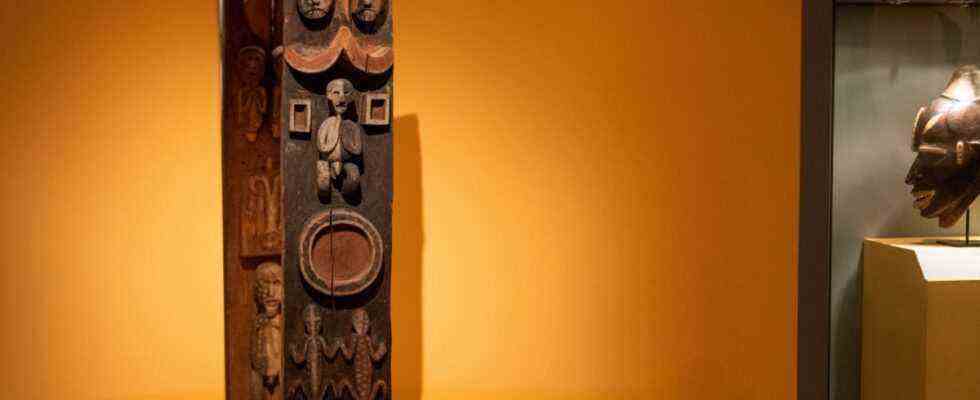During a research project, the Five Continents Museum in Munich identified around 50 items from its collection as possible colonial looted art. According to a preliminary assessment, they came from problematic employment circumstances, the museum announced on Friday in Munich, where the results were to be presented in an online event in the evening.
The provenance of the wooden Blaue Reiter post, which the Blauer Reiter group of artists depicted in their 1912 almanac, is still unclear. In the suspected region of origin of the sculpture in Cameroon, research was very difficult and sometimes impossible due to civil war-like conditions.
The project recently hit the headlines because a research team from Cameroon was not allowed to enter the country for the final meeting. The researchers led by the cultural scientist Albert Gouaffo from the University of Dschang and Karin Guggeis from the Five Continents Museum had been examining the provenance of around 200 objects from the Max von Stettens collection since November 2019.
At the end of the 19th century he commanded a colonial troop of the German Empire in Cameroon and donated numerous objects to the museum. According to the current status, some items came into the possession of Stettens as part of military actions, so-called punitive expeditions, the museum reported. Others were most likely acquired legitimately.
The researchers classified around 50 objects as problematic, including two sacred or cult figures, three blowing horns, two bark beaters and weapons. According to the museum, it has yet to be clarified how the objects will be handled.
Visa policy as a research obstacle
At the end of the project, one female and two female researchers from Cameroon were supposed to travel to Munich, but they were refused. According to the Ministry of Foreign Affairs, the visas could not be issued because the required documents were not submitted.
The art historian Bénédicte Savoy then criticized that Germany’s restrictive visa policy “once again thwarted research from objects in colonial contexts”. A visa policy is needed that enables transnational cooperation, demanded Savoy and other scientists.
The refusal of entry came as a surprise to the museum. A spokeswoman said that a personal exchange is of the utmost importance, especially with such a sensitive topic as the coming to terms with colonial injustice, even beyond the current research project. The intensive cooperation is “the heart of postcolonial provenance research”.

